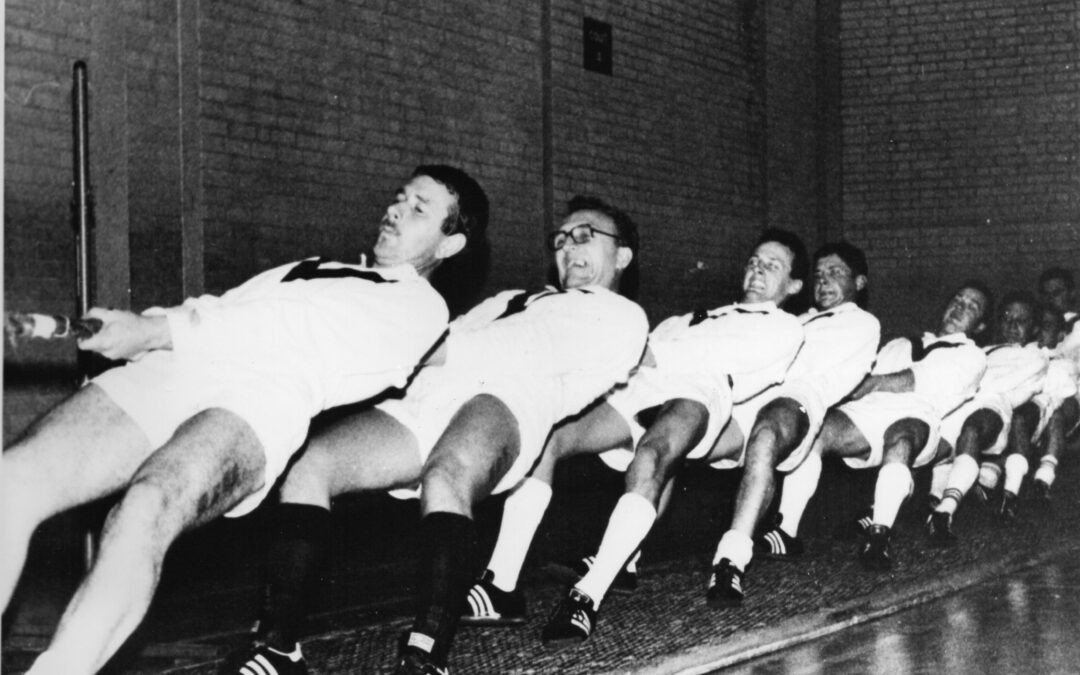Organized by the International Olympic Committee (IOC), the first modern Olympic Games took place in 1896 in Athens, Greece, and featured sports such as cycling, wrestling, swimming, weightlifting, and tennis. Over the years, the IOC has added and removed some sports, while others have been part of the Olympic program since its inception. The upcoming Paris 2024 Games, for example, will feature one new sport: breakdancing. Skateboarding, surfing, and climbing, which were first featured at the Tokyo 2021 Games, are also among the newest sports in the competition.
Below is a look at some of the sports that are no longer part of the Olympic program.
Cricket
Despite being an incredibly popular sport in many parts of the world, including India and Australia, cricket has only once been contested at the Olympic Games. That was back during the 1900 Paris Games, and the competition only involved two countries: England and France. Interestingly, the majority of the French team was made up of Englishmen working at the British Embassy in Paris.
Playing 12 men a side, the English team beat the French squad by 117 & 145 for 5 declared against 78 & 26 in a lopsided affair that ultimately diminished the chances of the sport being included in subsequent Olympics. Today, cricket is played in many international events, including the Asian Games, and the sport’s athletes and governing bodies are pushing for inclusion at either the 2028 Los Angeles Games or the 2032 Brisbane Games.
Lacrosse
Another sport included in the early years of the modern Olympics, lacrosse was an official Olympic sport in 1904 and 1908 and contested as a demonstration sport in 1928, 1932, and 1948. Native Americans created the sport of lacrosse, so it’s fitting that a team of Mohawk people, representing Canada, won the bronze medal in the 1904 St. Louis Games. Another Canadian contingent, the Shamrock Lacrosse Team of Winnipeg, beat the St. Louis Amateur Athletic Association team in the gold medal game.
Four years later, Canada defended its gold medal by beating Great Britain 14-10. They were the only two teams in that year’s Olympic lacrosse program. Canada, Great Britain, and the United States competed in the first demonstration event in 1928, while only Canada and the US played in 1932. Sixteen years later, the US and Great Britain played one demonstration match, a 5-5 draw at Wembley Stadium during the 1948 London Games.
Tug-of-War
Tug-of-war is mostly thought of as a kids’ summer camp game in the 21st century, but more than 100 years ago it was an official Olympic sport. This game, which involves two teams pulling on opposing ends of a rope to determine which group is stronger, was contested at each of the five Olympic Games from 1900 to 1920. Countries were allowed to enter multiple clubs, allowing for one country to win multiple medals in a single Olympics. The first event in 1900 involved one match between a six-man French team and a mixed nations team at the Boulogne Forest in Paris.
Thirty participants on six teams from three countries (five members per team) competed in the tug-of-war competition at the 1904 Games, with the US sweeping the podium that year. Team sizes were increased to eight members in each of the following three Olympic Games. Great Britain won all three medals in 1908. Only two countries—Great Britain and Sweden—competed in 1912, and five countries participated in 1920.
Motorboat Racing
Contested as a demonstration sport at the 1900 Paris Games, motorboat racing was an official sport at the 1908 London Games with three competition categories: eight-meter, 60-foot, and open class. A male-only event, all classes involved five laps around a designated course in Southampton Water, totaling 40 nautical miles. The competition was slated for mid-July, but was moved back a month at the request of the Duke of Westminster and Lord Howard de Walden, who were in the US challenging for the British International Cup at that time.
Great Britain racers won gold in the eight-meter and 60-foot classes, while a French team took home the gold medal in the open class. While some discontinued sports may return to the Olympic agenda in the future, motorboat racing likely won’t unless the IOC changes its charter, which states, “Sports, disciplines or events in which performance depends essentially on mechanical propulsion are not acceptable.”
Polo
One of the oldest team sports, polo is played on horseback and involves two teams trying to direct a small ball into each other’s goal using a mallet. The sport was contested at the Olympics five times from 1900 to 1936. Great Britain and Argentina dominated at the Olympic level, combining to win each of the five gold medals. Great Britain clubs won all three medals in 1908. Argentina won the gold medal in 1924, winning each of its four games, and again in 1936, beating Great Britain 11-0 in the final in front of 45,000 people.

